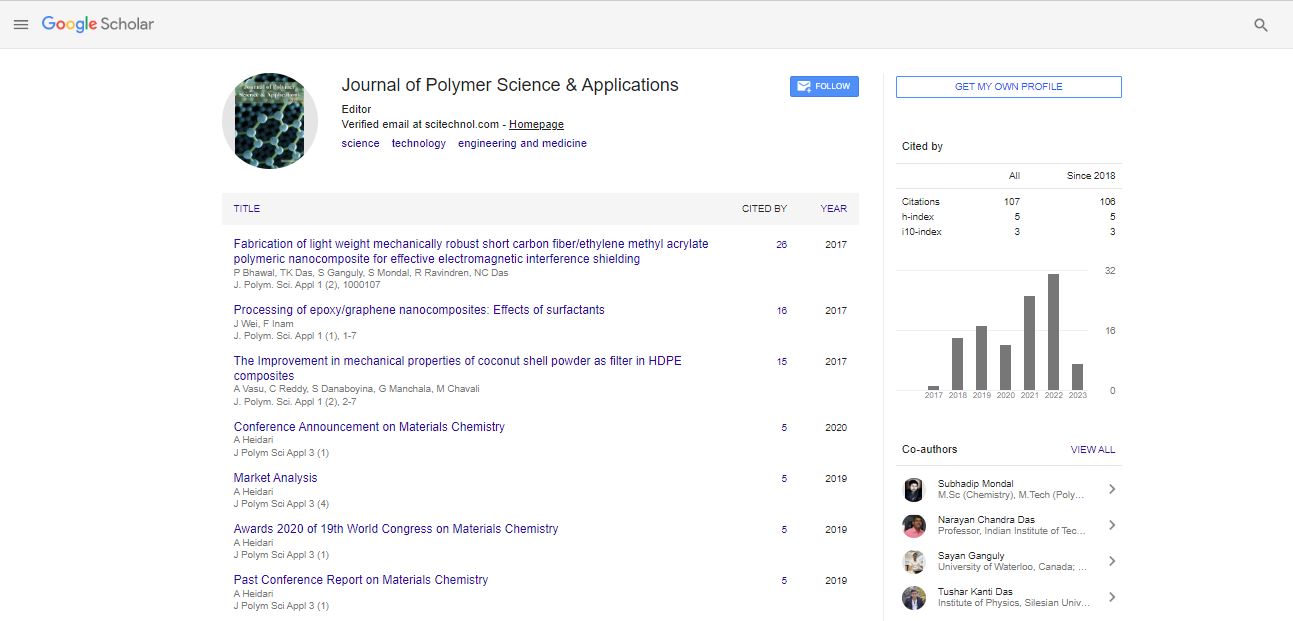New metallo-supramolecular polymers based on α,ω-bis(tpy) thieno[3,2-b]thiophenes
Chernyshev Andrei Alekseevich
Charles University, Czech Republic
: J Polym Sci Appl
Abstract
Conjugated metallo-supramolecular polymers (MSP) attract attention of many researchers, as a new type of better processable materials for applications in optoelectronics and electronics. Research in this field combines the covalent polymer chemistry and organometallic chemistry of coordination compounds. A typical MSP consists of organic building blocks (called unimers) capped with at least two chelating end-groups, through which unimer molecules are reversibly linked into supramolecular chains by coordination to metal ions (“ion couplers”). Numerous ditopic unimers bearing two 2,2':6',2"-terpyridine-4'-yl end-group (tpy) are described in literature. Specific configuration of nitrogen atoms provides fac-mer (facial-meridional) coordination of tpy end-groups to the ion couplers that gives MSPs with a well-defined stereochemistry representing an important feature for the charge transport in organic semiconductors. The properties of MSPs can be easily tuned by modifying the central block of unimer or ion couplers. Since 2011, number of α,ω-bis(tpy) unimers with oligothiophene and other central blocks and related MSPs have been developed and studied as to their properties in our group. Recently, the singlet fission (SF) phenomenon was revealed in thin films of the MSP formed by self-assembly of α,ω-bis(tpy)terthiophene with Zn2+ ion couplers. The present work concerns unimers containing thieno[3,2-b] thiophene-diyl units in central block and related MSPs with various ion couplers. Introduction of thieno[3,2-b]thiophene-diyl unit to unimers seems to be a good way to decrease the conformational disorder, increase the extent of Π-electron delocalization and, as a result, to reduce the bandgap energy in resulting conjugated systems. Study of photophysical properties of obtained MSPs with focus on the SF phenomenon is envisaged.
Biography
Chernyshev Andrei Alekseevich has received his MSc degree from Institute of Chemistry, Saint Petersburg State University in 2018. Presently, he is a PhD student in the Chemistry department at Charles University. Topic of his PhD project is: “Metalo-supramolecular systems for photonic and electronic applications”.
E-mail: chernysa@natur.cuni.cz
 Spanish
Spanish  Chinese
Chinese  Russian
Russian  German
German  French
French  Japanese
Japanese  Portuguese
Portuguese  Hindi
Hindi 